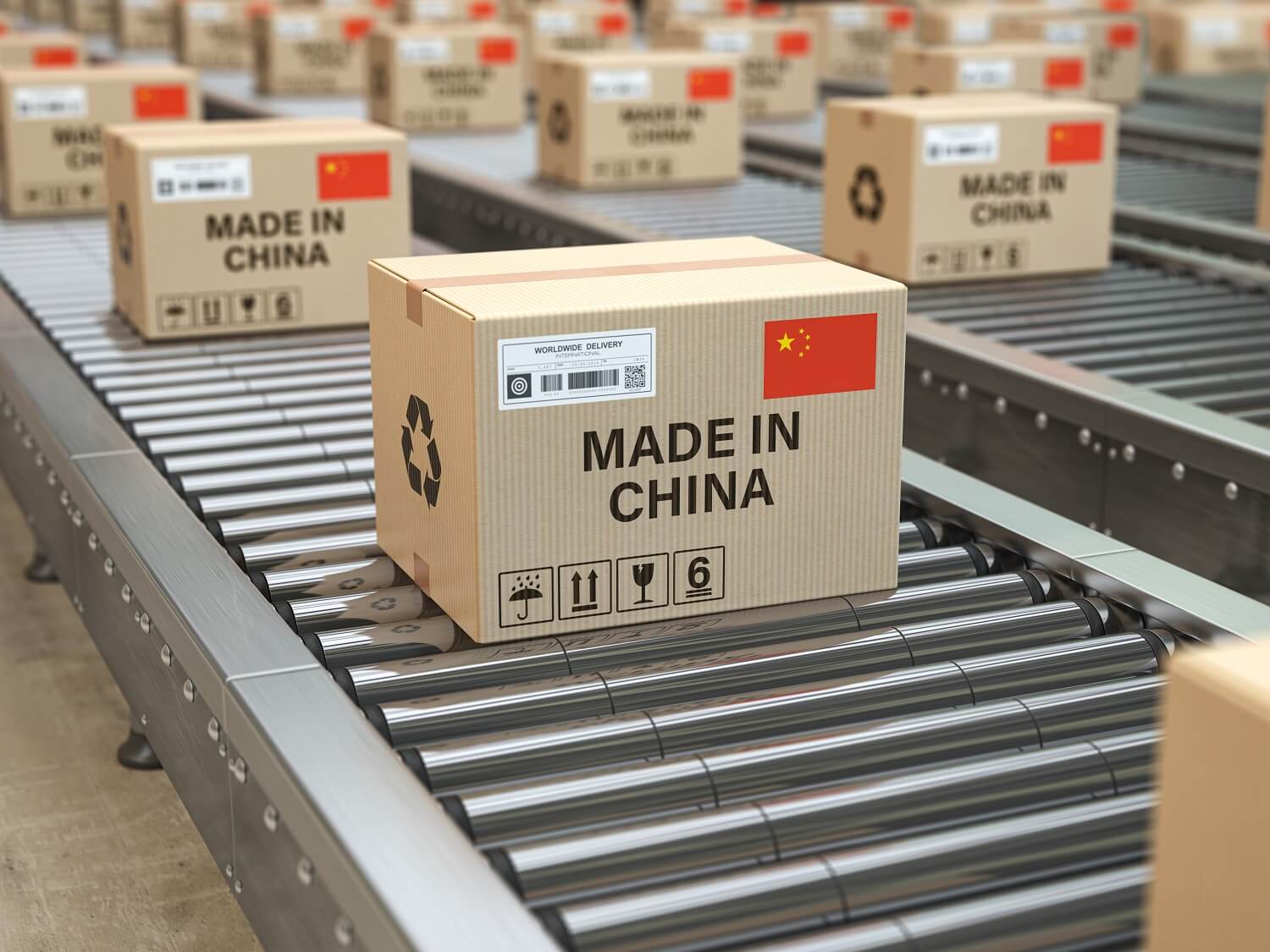A trading company is one of the most popular forms of business entities in China for foreign investors, mainly because of the versatility it offers. Here we discuss this type of business setup and the advantages it can offer you.
What is a China Trading Company?
Trading companies in China act as an intermediary between suppliers and producers. They procure products from multiple factories at wholesale prices and then resell them for profit under the name of their subsidiary. In some cases, their function is not limited to local goods as they also possess expertise in processing both imports and exports.
Trading companies deal with multiple manufacturers and suppliers in order to maximize their sales. They usually hire sales representatives to manage their channels in the local and international markets.
In essence, trading companies are like providers of different products that have come from several factories. Other businesses source their goods from trading companies because they can give faster results in comparison to directly communicating with Chinese suppliers and manufacturers.
The Role of Trading Companies in the Chinese Market
Factories based in China often deal with a single type of product. For example, if the manufacturer produces clothes, then it is likely they only sell these items and nothing else. Additionally, they produce and sell goods in large quantities, making it less feasible for other businesses to procure smaller batches.
Trading companies play a crucial role in sourcing goods and selling them to buyers. A trading company will prepare the set of products that clients need, so they can order it in one go instead of dealing with several manufacturers.
Generally, they are the preferred option for companies that want to buy products in low quantities for lower prices. Similarly, there are trading companies that specialize in procuring and selling hard-to-find products, so they are the go-to option for small to medium-sized businesses.
Benefits of a Chinese Trading Company
International companies that have familiarized themselves with the Chinese market often want to establish a foreign-invested commercial enterprise (FICE), in order to legally perform transactions. The FICE is the most convenient and cost-efficient type of business structure for companies that want to conduct wholesaling, franchising, retailing, importing, and exporting products.
The biggest benefit of establishing a trading company is getting a five-in-one license necessary to scale up or expand operations. It adds versatility and flexibility to a business by getting access to lower manufacturing and supplier costs while expanding its reach to international markets.
3 Types of Entities You Can Set Up
There are 3 types of entities that foreign investors establish to legally conduct business in China. They can set up a Wholly Foreign-Owned Enterprise (WFOE), a Joint Venture (JV), or a representative office. The WFOE is the most commonly selected and favored structure because it gives foreign investors better control over the business.
A WFOE can be classified into three types: consulting, manufacturing, and trade.
Consulting
This is the most basic form of WFOE and requires fewer documents to establish. A Consulting WFOE is prohibited from profiting from other services that are not within the scope of a consulting company.
Manufacturing
Companies that need to produce or trade goods can set up a Manufacturing WFOE. The requirements for this are more expansive as the company must find a suitable manufacturing location and submit documents related to the manufacturing process and equipment to be used.
Trade
When a WFOE (or JV) engages in product trading, it becomes a Trading Wholly Foreign-Owned Enterprise in the form of FICE (foreign-invested commercial enterprise). It has the power to import products into China and export goods to the rest of the world, making it the perfect option for foreign companies that deal with international products or wish to send products to other parts of the world.
How to Open a Trading Company
The entire registration process can be divided into two parts, namely pre-registration and post-registration. During pre-registration, the following documents must be submitted to obtain a business license:
1. Articles of Association
This document contains the name of the company, its scope, address, registered capital, and the name of the shareholders.
2. Business Scope
A WFOE can only conduct business within its approved scope, which will appear on the business license.
3. Registered Capital
There is no minimum registered capital requirement for establishing a WFOE, but it should be enough to cover all expenses until the company can generate a positive cash flow.
4. Company Name
Companies must register their Chinese and English business name; the official name of the WFOE would be in Chinese. Applicants must submit 5 to 10 proposed names where the State Administration for Market Regulation (AMR) will have the final say. The name of the company should follow any of the following formats in Chinese:
- Company name + Industry + Geographical name + Ltd.
- Geographical name + Company name + Industry + Ltd.
- Company name + Geographical name + Industry + Ltd.
5. Office Location
For the WFOE application to be approved, a valid business address – complete with an office lease contract and housing ownership certificate with official stamps – must be presented. The registered office address must not be different from the operation address, a virtual address, or be in a residential or combined commercial and residential building.
Take note that the requirements differ for each company. For instance, to establish a food and beverage trading office, a company needs to rent a place that is at least 35sqm. Additionally, its address should be the same as the address indicated in the Business License.
Post-registration consists of administrative work that can be done after the business license is obtained and includes the following:
1. Carving Chops
Depending on the nature of the business, multiple carving chops may be registered. The most common types of chops in China are Financial Chop, Company Chop, Contract Chop, Invoice/Fapiao Chop, and Legal Representative Chop.
2. Tax Registration
There are two types of VAT taxpayers that trading companies can register: Small-Scale Taxpayers and General Taxpayers (find out more about the VAT system in China).
3. Opening of Bank Accounts
A WFOE will need two bank accounts: a Foreign Capital Account and an RMB Basic Account.
4. Customs Registration
The certificate of registration, the business certificate for international trading, and the license to import and export goods should all be obtained in this step.
Advantages and Disadvantages of Trading Companies
The Advantages
Variety
Most trading companies deal with several manufacturers, so they offer more variety with their products instead of a single type of item.
Lower Minimum Order Quantity
Factories require large-scale orders that often cannot be fulfilled by small to midsize businesses. Trading companies become the more viable option because they have way lower minimum order quantity requirements, enabling smaller companies to purchase items from them at lower prices.
Export-friendly
One of the main expertise of trading companies is their customer service. This means that they are highly likely to have more English-speaking staff in their sales team to deal with export services.
The Disadvantages
They work with Low-Grade Factories
Like every other business, trading companies must maintain a profit while keeping their prices competitive. One way to do this is to work with low-grade factories that do not have enough exposure or quality control over their products.
Possible Quality Issues
Trading companies have less control over the manufacturing and the quality of products. But since they have to sell products to importers and foreign companies, trading companies might keep mum about possible defects they have observed in fear of having deals canceled.
While trading companies usually have their own QA team, they are only subcontractors whose job is to match buyers and manufacturers, bridge the communication gap, and legally ship products abroad. Therefore, they might prioritize profit over quality control.
Higher Prices
Since trading companies function as intermediaries, they mark up the prices of goods in order to make a profit. This means that their prices will still be higher than it would if a company were to speak to a factory themselves.
Open a Trading Company in China
When opening a trading company in China, it is important for your business to understand the regulations and processes. Often, companies have set up the wrong type of enterprise or set it up incorrectly resulting in limitations on business activities or in some cases making them liable to a fine.
For more than a decade we have helped companies set up in China, ensuring their accounting and administrative needs are taken care of. For all kinds of company set up, MSA provides you with the support you need.
Get in touch with us right away and let us help you get started in China.





